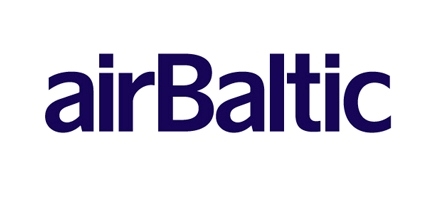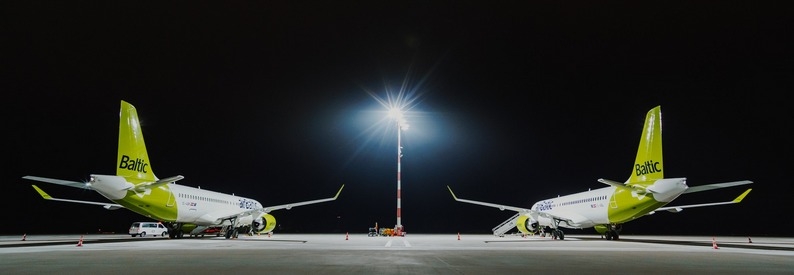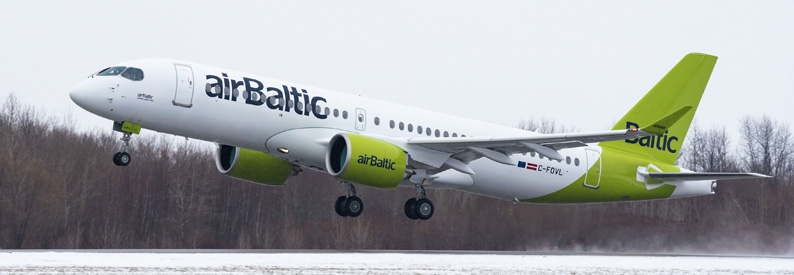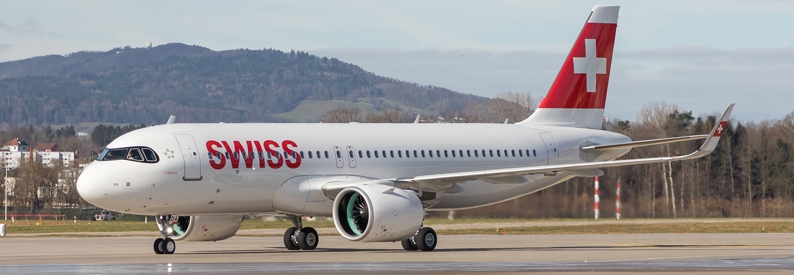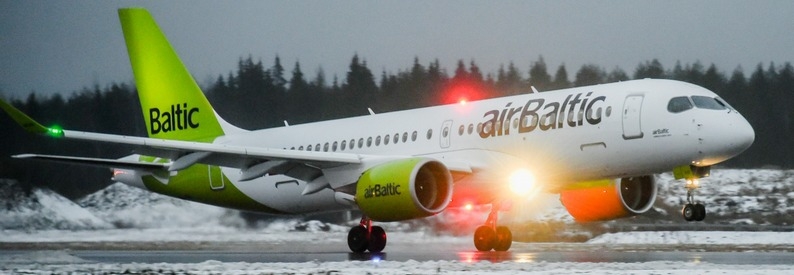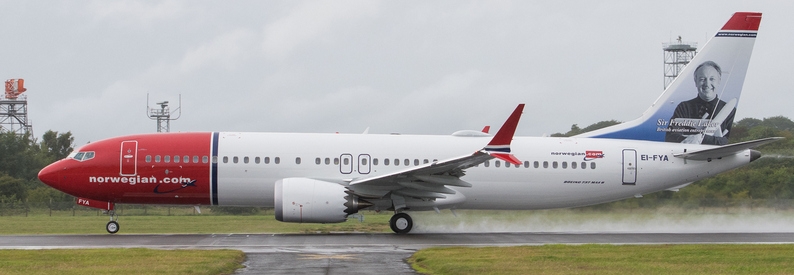Latvian state-owned carrier airBaltic (BT, Riga) has about half a year left to find EUR200 million euros (USD215.5 million) to repay investors who bought bonds the company issued in 2019. The task is doable, CEO Martins Gauss said in an interview on the LTV (Latvijas Televīzija) programme De Facto on the evening of Sunday, February 11, but the state may have to help.
Repaying the debt is a prerequisite for the company’s much anticipated listing on the Nasdaq Riga stock exchange, which is planned towards the end of the second half of this year. Gauss expressed confidence that the company will be able to raise the money, but he did not rule out the possibility that the state may have to get involved as the majority shareholder. Although turnover is growing, borrowing will likely be expensive for the company.
At the Latvian Capital Market Forum 2024 hosted last week by central bank Latvijas Banka, airBaltic’s chief financial officer, Vitolds Jakovļevs, revealed that the company was in negative equity to the tune of EUR71 million (USD76.5 million), which would inevitably mean higher interest rates for loans.
In recent years, despite the odds, the company has managed to grow its turnover rapidly. Revenue for 2023 is expected to be EUR668 million (USD720 million), which could mean it will be the first year since 2018 that brings in a small profit.
But the most recent financial report, for the first nine months of 2023, indicated that short-term liabilities exceeded current assets by EUR352 million (USD379 million). The main reason is that on July 30 it must repay bondholders EUR200 million. Gauss said that the company does not currently have such money. Last October, it ruled out the issuance of further bonds to refinance the debt for now, given that the five-year 6.75% bonds it had planned in 2019 and then issued that summer are still outstanding. The most recent financial report listed three options to repay the sum - borrow from private lenders, issue new bonds, or ask for help from the state.
“All three of these options are possible. We cannot make an announcement today as to which of the options will come true. But one of them will happen, preferably the one that is best for the company and for the shareholders,” Gauss told LTV.
“Today, we do not plan to approach the Latvian government, because we plan to refinance the bonds with money from private lenders or capital market financing. We do not want to ask for government support for this purpose, we want to find another solution, and I am sure we will have another solution. But at the same time, we also have to say that the role of the shareholder could also be there,” he elaborated.
Gauss admitted that the Baltic region in general seems risky to international investors right now because of neighbouring Russia’s ongoing war in Ukraine, despite the Baltic countries having the security of being both NATO and European Union members. He expressed his belief that airBaltic would find lenders who recognise the improvements in the company’s results and the fact that the bonds issued in 2019 have recovered on the market after a drop in value despite the pandemic.
“This shows we are doing the right thing, because our bonds would not be trading at such a price if the financial markets believed that there were problems with airBaltic,” he said, while hypothesising that only locally, mainly on Twitter (X), “people are panicking for unknown reasons. We don’t do that.”
